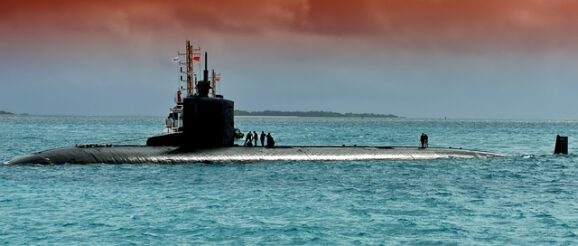Invisible No More: China’s Innovation Unmasks US Submarine Stealth – Industry Tap

The United States and China are engaged in a technological race in several areas, including hypersonic weapons, artificial intelligence, and quantum computing. In certain crucial domains, China seems to have surged ahead of the United States.
Presently, the advantage of stealth capabilities of the US submarines could be compromised by China!
The stealth submarines of the United States Navy are some of the most advanced in the world. They are designed to be virtually undetectable by enemy forces, giving them a significant advantage in any conflict.
However, Chinese scientists have recently devised a groundbreaking method to detect these submarines, completely nullifying their stealth advantage.
Scientists at China’s Fujian Institute of Research on the Structure of Matter have revealed that an ultra-sensitive magnetic detector has the potential to locate even the most advanced US submarines over significant distances. These findings were published in the esteemed Chinese Journal of Ship Research.
Evading the Chinese method could prove to be a formidable challenge!
The magnetohydrodynamic (MHD) effect, resulting from the interaction of a conducting fluid with a magnetic field, can be harnessed to detect submarines by measuring their generated electromagnetic signature. The bubbles that are created by a submarine’s propellers can generate an electromagnetic signature, as can the movement of the submarine’s hull through the water.
Computer modelling reveals detectable electric field signals in the low-frequency range (49.94 Hz to 34.19 Hz) around submarine hull areas. Despite their faintness, these signals can travel far through water, even reaching the ionosphere before reflecting.
There are persistent challenges like potential signal interference from noise and turbulence. Submarines slowing down or stopping may not emit detectable signals. Yet, the development of this technology for locating submarines of hostile nations is just a question of time.
Nidhi is a gold medalist Post Graduate in Atmospheric and Oceanic Sciences.
